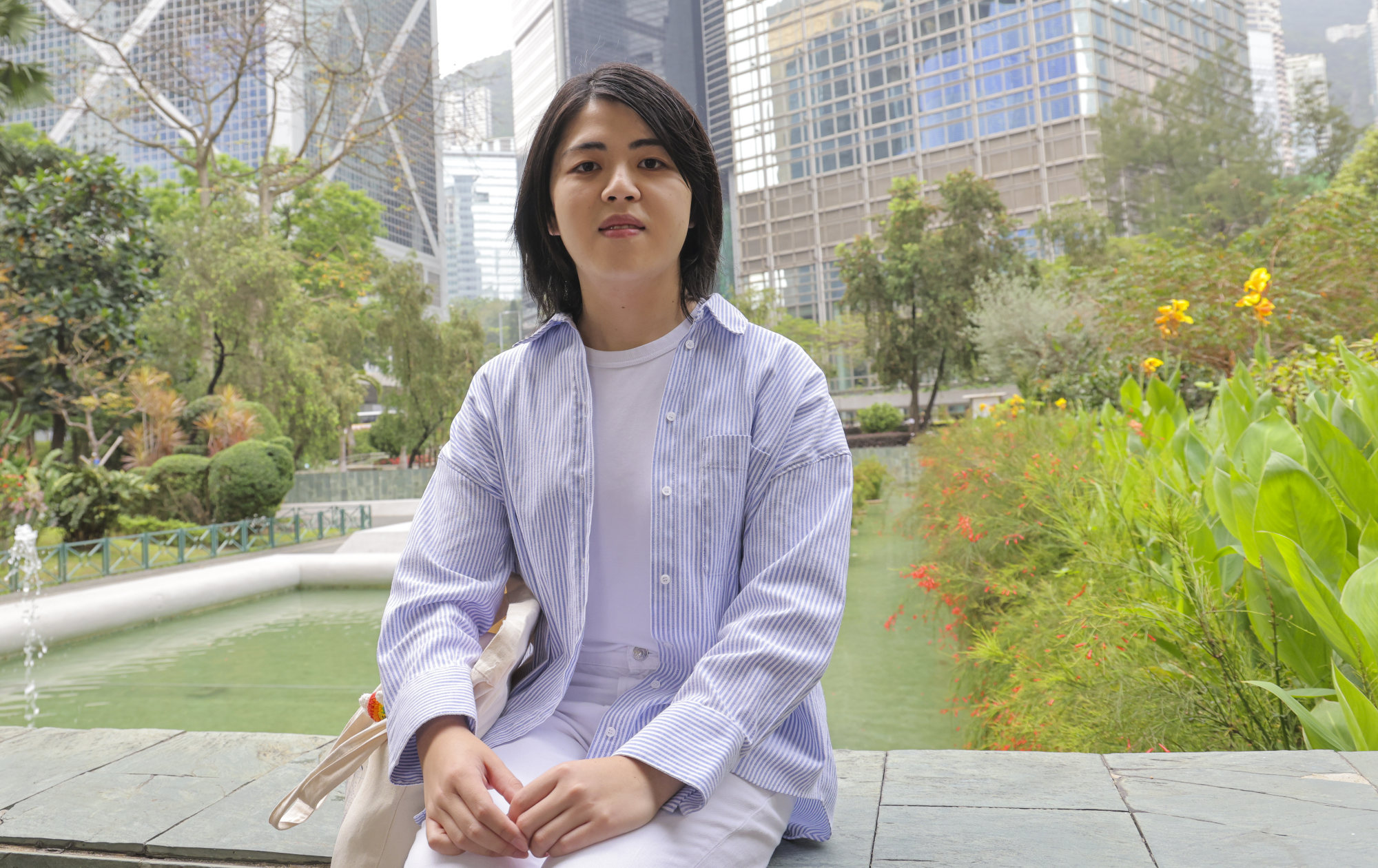
Hong Kong law school ‘may have breached anti-discrimination rules’ by telling transgender student to use toilets for the disabled
- Christine Chu, 24, says Chinese University’s law school told her to use toilets for people with disabilities when she asked about using women’s facilities
- According to Chu, the Equal Opportunities Commission suspects faculty may have violated Disability Discrimination Ordinance
Hong Kong’s equality watchdog has found that Chinese University’s law school may have breached anti-discrimination legislation by telling a transgender student to use toilets designated for people with disabilities after she inquired about using the ones for women, according to the complainant.
Christine Chu Tsz-wa, a 24-year-old transgender woman pursuing a postgraduate certificate in laws at the university, on Thursday said in a social media post that the Equal Opportunities Commission had contacted her with its preliminary findings in the case.
Speaking to the Post, Chu revealed she started receiving feminising hormone therapy in November last year. While Chu was undergoing social transition, a psychiatrist from a government hospital advised her to switch from using toilets for people with disabilities to ones for women, as a way to prepare for planned gender-affirming surgery.

In the letter, the psychiatrist said being treated as a woman in social situations and using appropriate gender-specific facilities was an important part of the transition process, Chu added.
The student sent the letter to the university’s law faculty and asked for permission to use the women’s facilities at the Graduate Law Centre in Admiralty, but her request was rejected.
“The law school said there was a ‘barrier-free’ toilet which was gender-neutral,” she said. “For me, the point is not whether the school allowed me to use women’s toilets or not, it’s them telling me to use toilets for the disabled instead. This attitude is kind of discriminatory.”
She added two professors had tried to help her but the law faculty insisted on the decision. Chu then sought legal advice and filed a complaint to the commission two weeks ago.
The student said the equality watchdog told her it suspected the law school had violated the Disability Discrimination Ordinance by requiring, without justifiable grounds, all students to use gender-specific toilets according to their sex assigned at birth.
Chu added that the commission was setting up a meeting to resolve the dispute, while gathering evidence from her and the faculty.
The watchdog said it would not confirm or deny whether it had received the complaint due to confidentiality reasons.
Chu said she preferred to resolve the dispute with the faculty instead of pursuing legal means, even though she could file a petition to the court within two years of the incident.
There is currently no law against discrimination on the grounds of sexual orientation or gender identity in Hong Kong. Transgender people can only file complaints about discrimination under the Disability Discrimination Ordinance.
Chu previously completed a two-year juris doctor programme at the same university.
She earlier posted a photo on social media showing a sign for the “barrier-free” toilet, which featured symbols for a man, a woman and a person sitting in a wheelchair.
“It is appreciated that the law faculty is creating more gender-friendly facilities, but it is also interesting that the law faculty thinks the sign matters when it comes to gender-affirming healthcare,” she wrote.
A spokeswoman for the university said it was not in a position to offer comment as the faculty was not aware of any reply from the commission.
A landmark ruling in Hong Kong earlier this year will allow the sex displayed on identification cards to be changed without the need to undergo full gender affirmation surgery, but authorities have not updated policies over the use of public toilets, changing rooms and hospitals.
The Leisure and Cultural Services Department, which manages public toilets, said people could use “accessible toilets” regardless of their gender, or choose to visit toilets for men or women based on the details on their ID cards.
In 2016, the University of Hong Kong set up its first all-gender toilet, featuring three figures on the door – the traditional symbols for men and women and a transgender person, in the colours of a rainbow.

